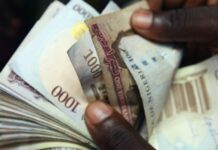Nigeria’s foreign reserves as at May 31, 2022 stood at $38.483bn which implied a five per cent decline from $40.521bn reported by end of December 2021,The Punch’s reports
On the other hand, South Africa, Africa’s second-largest economy after Nigeria, grew its foreign reserves to $60.28bn by end of April 2022 (when it last reported it) from $57.589bn recorded by end of December 2021.
By the end of April 2022 when South Africa last reported its reserves, Nigeria’s foreign reserves stood at $39.579 billion, having declined by 2.3 per cent since December 2021.
Foreign reserves are assets held on reserve by central banks in foreign currencies, according to Investopedia. These reserves are used to support the economy and boost foreign exchange market during emergencies or periods of crunch.
“If you do not want your foreign reserves to decline, then do more exports,” said Professor of Economics and former Assistant Director of the Central Bank of Nigeria, Jonathan Aremu.
“Then, a big question arises, for an economy with foreign exchange challenges and declining foreign reserves, where do political party candidates get dollars to spend in an economy that uses naira?”
Aremu explained that Nigeria’s foreign reserves would keep dropping when more dollars were spent to pay for imports while foreign exchange earnings from exports kept dropping.
Data show that Nigeria is an import-dependent and consuming nation. In 2021, the value of Nigeria’s total trade stood at $39.751tn, but total imports stood at &20.843tn while exports were valued at $18.907.79tn.
However, over 70 per cent of the exports were made up of crude, which was shipped abroad, refined and re-imported.
Nigeria earned $45.56bn from crude and non- oil within the same period, according to the NBS’ Foreign Trade Statistics. Crude oil made up over 76.22 per cent of this amount, while the non-oil was 23.78 per cent. Non-oil exports were around $10.836bn.
Vietnam earned over $38bn from garments in 2021 and $57.54bn from export of phones and accessories in 2021, according to the Vietnam Department of Customs. Bangladesh, once regarded as one of the poorest in the world, earned $35.81bn from export of fabrics and garments only.
South Africa’s manufacturing sector contributed 11.74 per cent to its GDP in 2020, according to the World Bank, but Nigeria’s hovered between eight and nine per cent that year, according to the NBS’ data.
In 2020, SA’s exports were around $102bn, making it 36th exporter in the world. Though it is also a commodity-driven economy, it is also big in finished products.
“Foreign reserves growth is just about producing more. We are not exporting enough. When we produce, we export. That is the only way to grow reserves,” Managing Director/ Chief Business Officer, Optimus by Afrinvest, Ayodeji Ebo stated.
He explained that Nigeria either had to reduce its spending on imports or begin to make stronger efforts to earn foreign exchange to support its economy.











